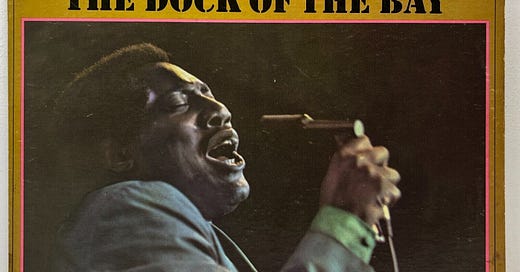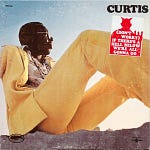Welcome to the fourth episode of the CROSSED CHANNELS podcast, in which Dan Epstein (the Yank) and Tony Fletcher (the Brit) clash and connect over music from across the pond.
Having discussed the rise and fall of The Sex Pistols in our last episode, we now head back across the Atlantic — and back a decade earlier — to tackle the rise and premature demise of legendary soul man Otis Redding.
Born in 1941 in Dawson, Georgia and raised in Macon, Otis began his professional singing career in the late 1950s as a Little Richard-influenced rock and roller, but his big break came in 1962, when he cut “These Arms of Mine” at the Stax studio in Memphis, with Booker T. & The M.G.’s backing him. That song reached #20 on the US R&B chart in late 1962, the first of 24 Redding singles to reach the US R&B Top 20 or higher.
But while Otis was enormously popular with Black audiences, his songs only occasionally crossed over onto the US pop charts, and it was only after his jaw-dropping performance at the Monterey Pop Festival in June 1967 that America’s mainstream pop scene began to finally recognize “The Big O” for the soul giant he was. But that penny had already dropped in the UK, where 1965’s Otis Blue had reached #6 on the album charts, and where the influential TV show Ready Steady Go! had devoted an entire episode to him.
Why did white British audiences (and the mainstream UK music media) recognize Otis Redding’s genius before white American audiences did? Why was it such a radical thing at the time for Otis to cover songs by both The Rolling Stones and The Beatles? What might he have gone on to accomplish if his plane hadn’t gone down in a frozen Wisconsin lake on December 10, 1967, taking the lives of Otis, his pilot, and five young members of his backing band, the Bar-Kays?
Dan and Tony discuss these topics and more, picking out three favorite songs apiece in an attempt to get to the heart of what made Otis Redding such a major figure in soul music, and why his recorded legacy still sounds so wonderfully fresh and alive to this day.
A free preview of Episode 4 is available to all listeners, but the entire episode (along with all previous CROSSED CHANNELS episodes) is only available to paid JAGGED TIME LAPSE or TONY FLETCHER, WORDSMITH subscribers. If you’re already a free subscriber to one Substack or the other, upgrade your subscription now to ensure that you don’t miss out on the fun. Cheers, and thanks as always for the support!

















